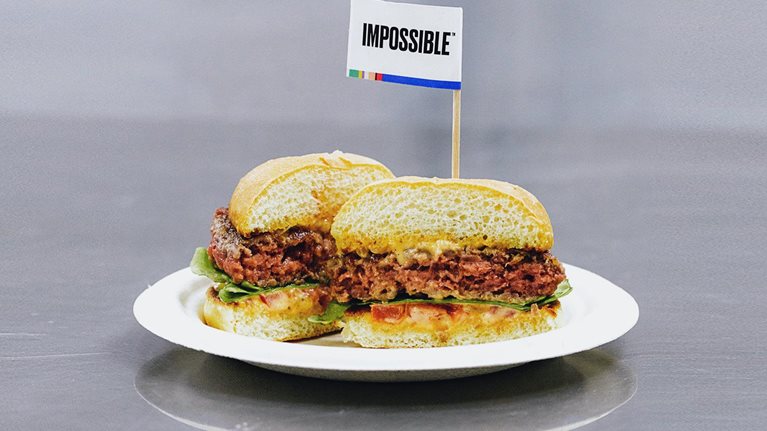Expanding a successful start-up into foreign markets is a big challenge that few get right. But that is just one of the many hurdles that Impossible Foods, which produces plant-based meat, has cleared. Among the many lessons learned are an ability to know when, where, and how to launch, as well as a team on the ground with intimate knowledge of the local market. Nick Halla, Senior Vice President of International for Impossible Foods, shares his insights about expanding internationally with McKinsey’s Tomas Laboutka.
Tomas Laboutka: For many start-ups, the decision to expand internationally is not straightforward. CEOs must choose between the growth-opportunity costs in their home market and the resources required for the new markets. The product has to be ready and the teams set up to handle the increased complexity. What was your decision-making process? When did you know you were ready?
Nick Halla: I think it’s a bit different for every business. For us, it was really driven by our mission to produce and deliver the most delicious meat, fish, and dairy foods the world has ever experienced—all made from plants, with a much lower environmental impact to help restore the planet’s biodiversity. We launched in the United States in 2016, but Asia consumes 44 percent of the global meat production, so we knew we needed to address the Asian markets early.
We entered Hong Kong in April 2018 and saw it as a great first international market that was small enough so we could pivot and change relatively quickly. Hong Kong is a mecca for global cuisine, so we had a large “lab” to start learning about consumers and their preferences. A lot of the aspects that we designed into product 2.0, from cooking performance to consumer tastes, we learned in Hong Kong. Our product 1.0 needed to be more robust in cooking so it could handle the diverse cooking methods and different types of cuisine. Impossible 2.0 helped us tap into local culture and accelerate growth. Additionally, we started learning how to run a global business and how to operate as a global company. As we continue to scale, we now know how to run the processes so we can build in the necessary complexity early on.
Obtaining organization-wide support to launch internationally was critical for our success. Food-industry market launches require total commitment, as opposed to doing a pilot test in consumer tech, where the scale and complexity are so much smaller. We needed to move fast. We had to make a call to go for it, even though we couldn’t check all the boxes up front on the first launch and had to learn a lot as we progressed.
Tomas Laboutka: What advantages did you have as you expanded to new customers? And how has this evolved over time?
Nick Halla: Our biggest advantage is having an amazing product. Our strategy has remained unchanged from day one—whether we’re building businesses in the United States or globally, we have to offer consumers something that makes their eyes light up and they crave. We also need to produce a product that resonates with the local culture, because food is very local, cultural, and family oriented. So we knew we needed to bring our experience of producing exceptional plant-based meat that would meet the demands of typical Hong Kongers. This is where finding the right restaurant partners and chefs comes in.
On top of that, our value proposition is based on good nutrition and sustainability. Initially, sustainability wasn’t an important aspect in the consumer’s eyes, but it is increasingly a significant purchase driver.
Tomas Laboutka: The preview of Impossible Pork followed a strong demand from outside the United States. How do you balance the development of new products versus expanding your existing ones?
Nick Halla: That’s always a hard strategic question for us. At Impossible Foods, we have a technology platform that has been developed to create any animal-related food product, and we intend to outperform the animal on every measure. But the challenge with that is, even if you can do everything, it doesn’t mean you should.
One recognizes the push and pull in various directions, and it’s really important as a company to choose the strategic levers you’re going to pull at each point in time. I believe you have to acknowledge that there are always going to be a lot of gray areas in parts of your business strategy, and that’s actually a good thing. You can adapt very quickly when you “see” gray. That balance is maintained by asking not whether you will do something but when—and making the hard decisions to adjust the time horizon. You recognize that priorities could change six months from now. But when you decide to go forward, the company and team must commit and move full speed ahead.
Prioritization depends on where you are as a business, and it’s important to understand what you are optimizing for. At Impossible Foods, we’re optimizing for driving our mission first. To fulfill our mission, we have to build a successful business, which is tied to consumers loving our products and brand. Our strategy to get there is to be very scientifically driven, which enables us to create products no one else can, and we apply this scientifically-driven mindset to broader decision making. We take a pretty deep analytical approach, and then we gather the executives and teams to debate the trade-offs. The answer is very seldom “no” and instead is typically “not now.”
Would you like to learn about Leap, our business-building practice?
Tomas Laboutka: Fast-growing tech start-ups coined the term “launcher” to describe a team responsible for the initial groundwork, with a general manager who oversees the launch and subsequently builds up the operations. What’s proven to be the right team setup for you?
Nick Halla: We need to do a lot of consumer education about our products as we scale globally. It’s getting easier with Impossible’s growing global brand, the growing trend for plant-based products, and the increasing awareness of sustainability, but this education is still critical.
To execute on that, I’ve found that the ideal team structure to drive international expansion is a strategic and very flexible group that is quite similar to the launcher concept. The team lands in a market, builds relationships with the right partners, and finds the right levers to pull with the local culture to have an impact across the entire market.
It’s also important to find great representatives of your brand, since they represent the front line of your company. The role of the launch team is ultimately to establish the key parts quickly, hire local talent, launch the market, and transfer the Impossible Foods culture. Having a local team that really knows the local culture and systems to scale in a market is also very important, and we’ve seen that work well in our first international markets.

Building a start-up innovation ecosystem: A conversation with Jardine Matheson’s Anne O’Riordan and Michael Poon
Tomas Laboutka: Many start-ups suffer from a lack of awareness among customers and partners. How did you tackle this challenge when entering new markets?
Nick Halla: When we entered Hong Kong, the initial awareness was low. The way we tackled this was to get on the ground and meet with the main influential opinion leaders in the food world outside of our network.
The combination of a great product (tasting is believing) and mission convinced our first two partners, and then word of mouth started spreading throughout the food community quickly. We also understood that in markets like Hong Kong, hotels and restaurants could be key entry points to drive food credibility.
On the consumer side, it was a combination of trials with consumers and strong media excitement. We have noticed that the local media is often looking for a positive story, and our mission helped us to connect with many of them. The moment we reached a few good local outlets and influencers, the ball started rolling. We started reaching a broader consumer base, which in turn helped us with our partners.
Tomas Laboutka: Based on your experience, what are the key areas start-ups should pay special attention to when executing across many markets? Some start-ups develop a playbook for market expansion.
Nick Halla: I believe in walking before you really start sprinting, and I think that’s going to pay big dividends as we continue to scale. But as you are building your playbook, it’s key to understand you cannot use the same plan for every market. You must leave it open to customization and fine-tuning.
If you use the exact same playbook for every market, you’re not going to connect with consumers very well. You can appreciate the commonalities in the launch and growth plans of the United States and those in Hong Kong and Singapore. We first have to build credibility in each market, but the way to do that is different in each. And then there’s also a lot of tweaking you can do to make the playbook more applicable to the local consumers and customer base. For example, in the United States, we built this credibility through meat chefs and the better burger chains. In Hong Kong and Singapore, we still needed to build the meat credibility, but we went broader quickly, adding top hotel restaurants, which lend strong food credibility, and local chefs, to tie into the local food culture. You learn by putting your people on the ground and talking to your partners, distributors, restaurants, and consumers. And then you tweak.
Tomas Laboutka: How did the COVID-19 pandemic impact your strategy and outlook going forward? What’s the next normal for international expansion?
Nick Halla: The pandemic has had a really profoundly negative impact on our food-service partners, restaurants, and distributors. Many of those are mom-and-pop shops that are really going through tough times, and we’re committed to coming up with creative ways to support them. For example, we started a program to enable our restaurant owners to sell raw, packaged Impossible products directly to consumers to give them a new revenue stream.
Besides COVID-19, a disproportionate number of other pandemics and viruses come directly from consuming animals. We know animal agriculture is a huge environmental catastrophe, and the United Nations projects that meat consumption will increase 70 percent by 2050. This is simply unsustainable. We’re already seeing cracks in the global food-supply chain, so the need to move from legacy agriculture to more-sustainable food sources is becoming more apparent every day.
The impact of COVID-19 on our international expansion comes down to timing and the resilience of our overall business. We focused on scaling up our retail launch faster, which is a solid complement to our restaurant business. Given our mission, we have to be flexible and adapt to the realities of the current world, while still pursuing long-term goals. Again, the answer likely won’t be “no,” but it may be “not now.”


